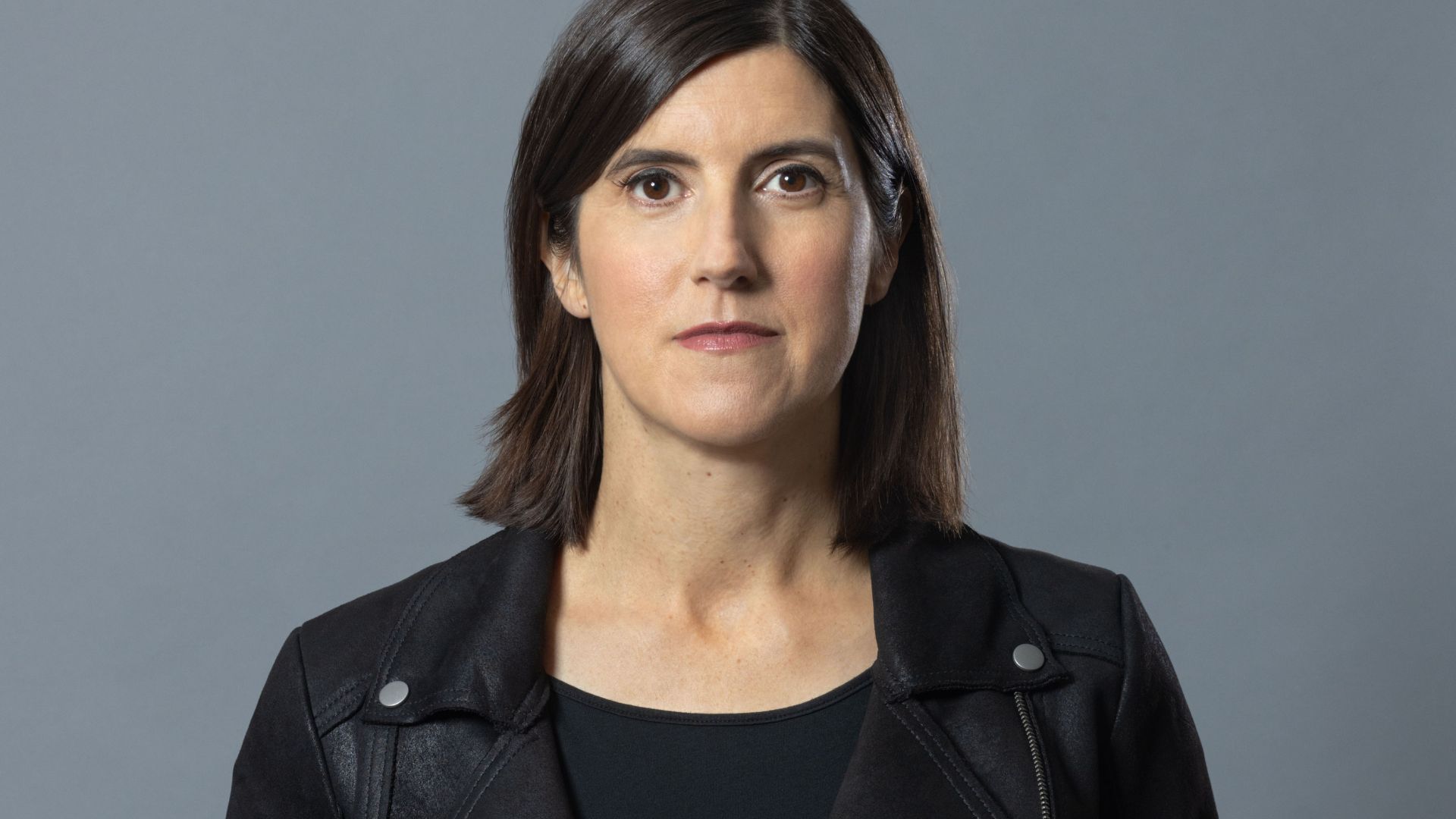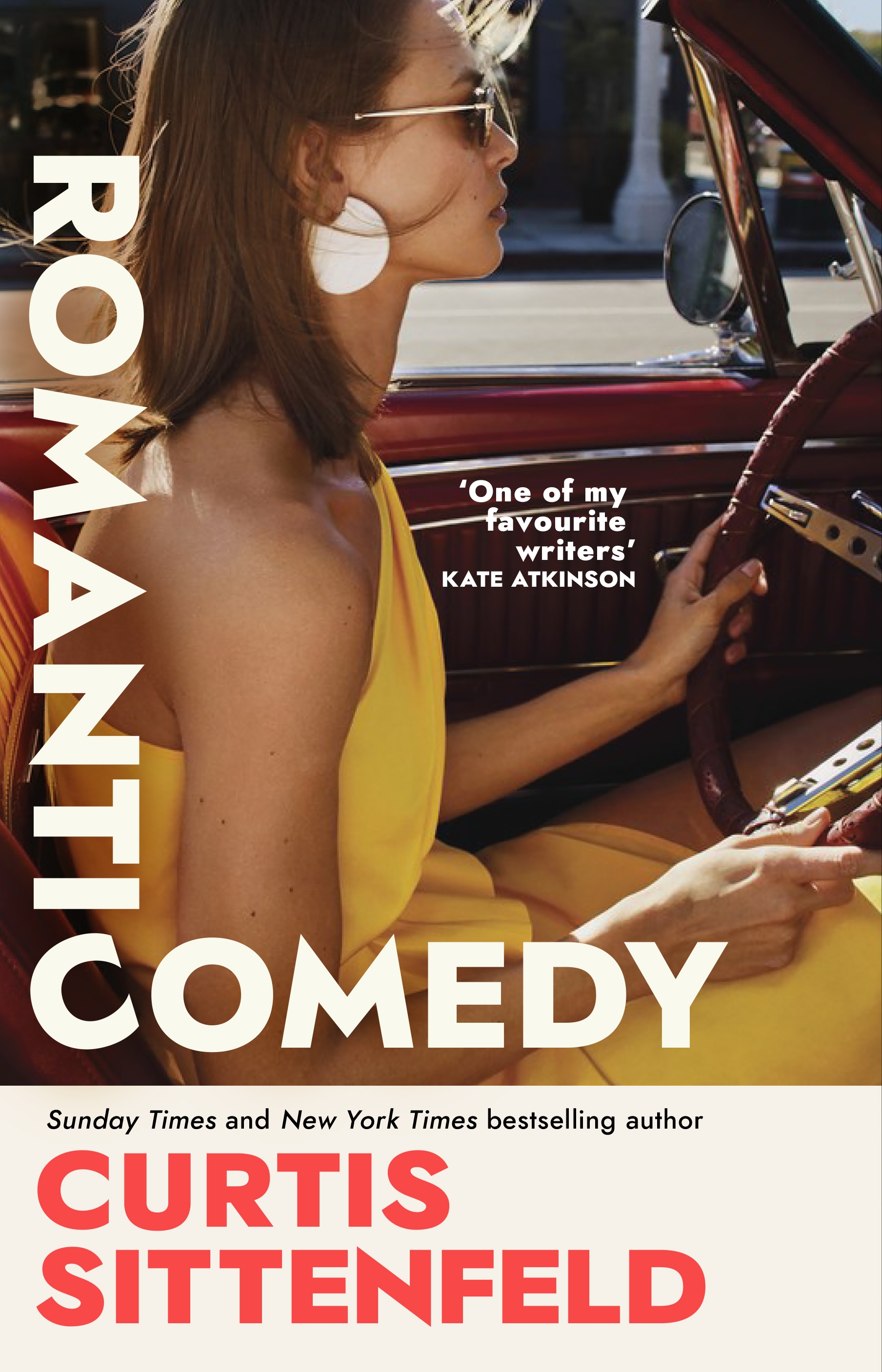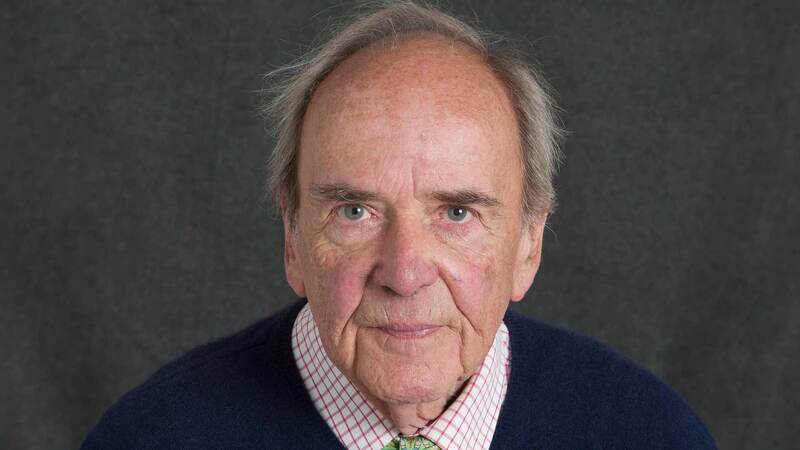You are viewing your 1 free article this month. Login to read more articles.
Curtis Sittenfeld discusses what happens behind the scenes in her new book, Romantic Comedy
The seventh novel by Ohio-born Curtis Sittenfeld is a tonic of a romantic comedy based around the writers’ room of a fictional hit TV sketch show.
"The world of this novel was an escape for me. Of course, I hope it will be an escape for readers, but it definitely was an escape for me first. People say, ‘Write the book you want to read’, but I think I was actually writing the world I wanted to exist in,” says Curtis Sittenfeld of her latest novel, the effervescent Romantic Comedy.
The novel’s heroine is Sally Milz, a successful TV scriptwriter on legendary late-night TV sketch show “The Night Owls” (a fictionalised version of “Saturday Night Live”) who has given up on finding love after an early, failed marriage, followed by a string of unsatisfactory relationships. Enter Noah Brewster, a handsome pop star with a reputation for dating models, who is invited to guest-host the show. Sally finds herself having to work closely with him, over the course of one hectic week.
In the UK, there’s no direct equivalent to “Saturday Night Live” (SNL), the much-loved US sketch show that has been running for 47 years. Sittenfeld, who has been a fan since she was at middle school, analyses the appeal of “SNL” for British readers on a Zoom call from her home in Minneapolis: “Because the sketches and jokes are written about stuff that’s happening that week, it’s almost always had the metabolism that social media has now. When it’s really working well, the show can do something so satisfying where it puts things into words that a lot of people have been feeling, whether it’s commenting on Covid or commenting on politics, it just acknowledges the absurdity of life in this really funny, entertaining way.”
It doesn’t seem to happen, as far as I know, when the woman is a writer, and the man is a famous, gorgeous celebrity
The seed for Romantic Comedy was sewn over the Christmas before Covid struck, when Sittenfeld was searching for a particular “SNL” skit to show her children—then aged 10 and seven (“questionably appropriate but anyway”, she jokes)—and they then started watching episodes from the past five years as a family. She became aware of how often “some gorgeous, super-talented female singer or actress will be a guest on the show and then start dating, and in some cases marry, one of the male writers on the show who is also talented but seems like an ordinary person as opposed to a transcending goddess. It doesn’t seem to happen, as far as I know, when the woman is a writer, and the man is a famous, gorgeous celebrity.”
The thought occurred to her that “someone” should write a screenplay about that very phenomena. Time passed, and she realised that “someone” might, in fact, be her. But as “I don’t really know how to write a screenplay”, she decided to write a novel instead and the result is Romantic Comedy, a gloriously quick-witted, intelligent love story, with sparkling dialogue and a satisfying plot.
Fever pitch
Romantic Comedy begins with the Monday afternoon pitch meeting where, in front of 40 writers, cast members and producers, Sally pitches a sketch she has christened The Danny Horst Rule. Danny is Sally’s friend and a fellow scriptwriter on “The Night Owls”, but when she discovered he was getting married to a glamorous actress, a former guest host, she was annoyed. He is lovely, but also a “schlub”, and he has now joined the club of interesting but average-looking men who get to date gorgeous women. The reverse never happens, and Sally’s sketch pokes fun at this social “rule”.
Sittenfeld’s novels all strike a balance between being realistic—fully realised worlds, believable characters—and entertaining, from her exceptional 2005 debut Prep, about a shy teenager from the Midwest grappling with the unwritten social rules at an élite East Coast boarding school, to the bestselling American Wife, a loosely fictionalised life of former first lady Laura Bush which was longlisted for the Orange Prize (now the Women’s Prize for Fiction).
Something that was appealing to me about the email structure is that the readers’ experience kind of mirrors the characters’ experience where, at this point in time, this [email exchange] is characters’ total interaction
Her seventh novel is so forensically detailed about life behind the scenes of a weekly television sketch show that, reading the novel, it’s hard to believe that she wasn’t sitting in the writers’ room herself, taking notes. But no, she read books by “SNL” alumni including Tina Fey, Amy Poehler and Sarah Silverman, listened to podcasts featuring comedians in conversation and watched the show’s YouTube channel. When the novel was “80% done” she went to a dress rehearsal of the show in full-on “anthropologist mode” to make sure she had everything right.
After the frenetic pace of the first part of the novel (the events of the week leading up to Saturday’s show), the middle section is told entirely in emails between Sally and Noah, now under lockdown in different parts of the country. In the hands of a lesser novelist I feel this might have been a cop-out, but Sittenfeld makes these pages zing and the pandemic is seamlessly incorporated into the story in a way that makes perfect sense. “Something that was appealing to me about the email structure is that the readers’ experience kind of mirrors the characters’ experience where, at this point in time, this [email exchange] is characters’ total interaction,” says Sittenfeld. “And so, if the reader is thinking, ‘Huh, so is that sentence flirtatious or not flirtatious?’, the reader can assess that with exactly the same information that the character has.”
It must be love
Romance is having a well-documented moment on BookTok so I am curious to know if this resurgence had any bearing on Romantic Comedy. Although she reckons romances were “in my bloodstream from a young age”, and recalls reading everything from Harlequin romances to Danielle Steel, Sittenfeld hasn’t been directly influenced by the BookTok boom: “I’ve seen a few TikToks transferred to other places—which is probably the wrong verb!—but I think that the same reason that I was motivated to write a light, fun, romantic book is probably the reason that they are having a moment culturally, which is that life has been pretty hard. It’s been globally hard, it’s been personally hard and so I think that there are just a lot of people who want some escape or want to read a book that is more likely to be cheerful and fun.”
I think this book has a lighter, fizzier tone, but I don’t think it’s really a huge departure for me. But I also think that a writer is not necessarily an impartial judge of her own work!
But she would argue that romance exists to a greater or lesser extent in all her novels; Rodham was full of the romance between Hillary and Bill Clinton, she says, “but it’s viewed differently… people think it’s a political novel, not a romance”. Of Romantic Comedy, she says: “I think this book has a lighter, fizzier tone, but I don’t think it’s really a huge departure for me. But I also think that a writer is not necessarily an impartial judge of her own work!”
When our time is up, I tell Sittenfeld again how much I loved Romantic Comedy, and how my proof arrived during a particularly bleak week but that reading it made me forget all my worries. Sittenfeld appears to be genuinely delighted: “I feel like there are so many problems in the world and I think there is very little that I feel that I can personally do about most of them, so I really want to write a book that someone enjoys. You can’t write a book that everyone enjoys, but it’s nice to write a book that someone really enjoys, it feels like, ‘Oh, I’m so happy that I could do that.’”











